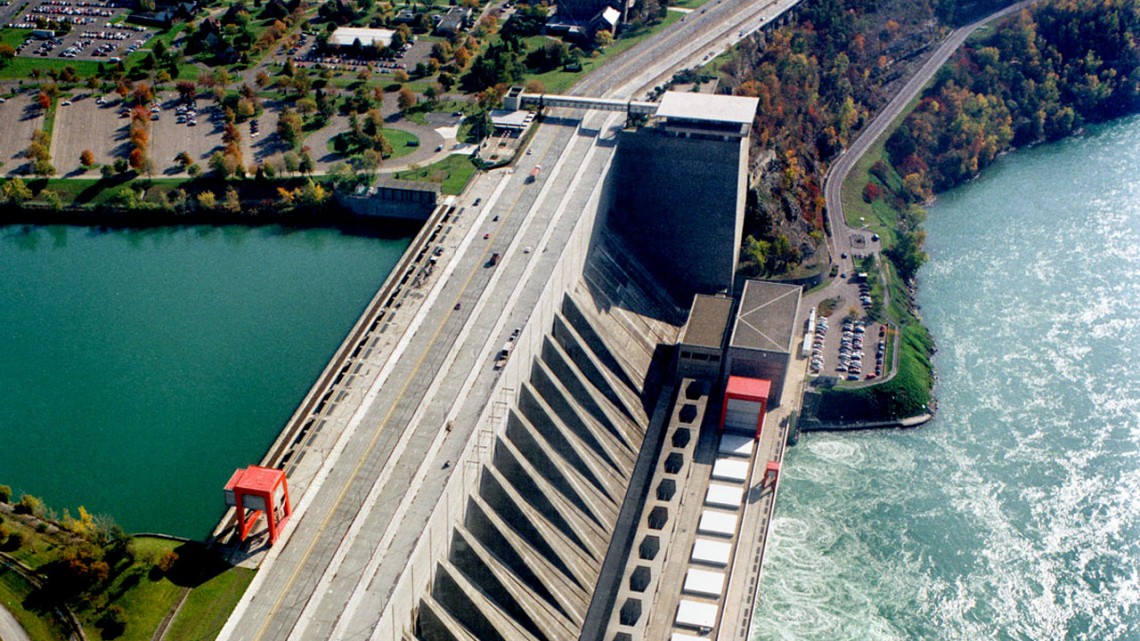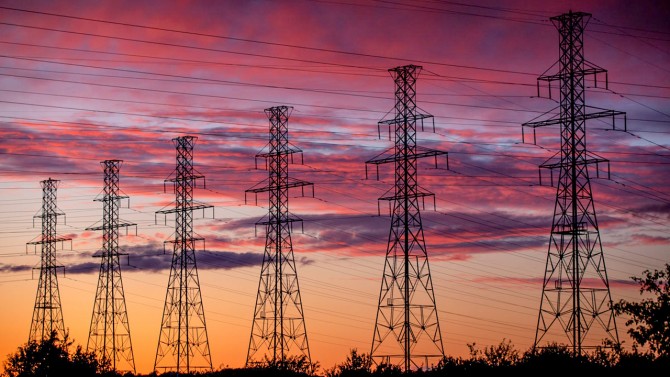
The Robert Moses Power Plant, located downstream from Niagara Falls, generates clean hydroelectric power and is a flagship project in New York state’s power infrastructure.
NYPA to get climate change science lessons from Cornell
By John Bakum
Drawing on Cornell’s expertise in climate change science and education, the Cornell Climate Smart Solutions Program is delivering a comprehensive training program for the New York Power Authority’s (NYPA) nearly 2,400 employees in New York.
Cornell researchers, along with researchers from Clarkson University and the State University of New York College of Environmental Science and Forestry, have been awarded contracts to partner with NYPA – the largest state public power organization in the U.S. – over the next year.
Led by Allison M. Chatrchyan, senior research associate in the Department of Global Development and the Department of Earth and Atmospheric Sciences in the College of Agriculture and Life Sciences (CALS), the project will leverage the Cornell Climate Smart Solutions Program and its multidisciplinary expertise in climate science, communication and policy analysis.
Chatrchyan and her colleagues have experience developing and leading climate change education programs, including courses, workshops and curricula for community members, volunteers and farmers.
“NYPA’s new climate science training program … requires all employees, from the CEO on down, to gain a basic understanding of climate change science and impacts, solutions and policies,” Chatrchyan said. “This sets an important precedent for other companies and agencies to follow by recognizing the importance of climate change for NYPA and the communities in which it operates.”
NYPA generates nearly 25% of New York state’s power. Ambitious goals set under the 2019 New York State Climate Leadership and Community Protection Act mandate that NYPA address climate change within its organization and with its customers across New York state. According to Chatrchyan, climate change training and increased literacy will help NYPA employees better understand the risks posed by climate change and the best strategies for mitigating these risks.
Training efforts will focus on three objectives:
- provide each NYPA employee with a working knowledge of the science of climate change, climate impacts and climate solutions;
- provide research-based evidence on the science of climate change in order to clarify misconceptions; and
- highlight NYPA’s plans to address climate change in its overall strategic planning.
“NYPA is playing an instrumental role in New York state’s transition to a clean energy economy and wanted a curriculum to help the entire organization become ‘climate smart,’” said Gil C. Quiniones, president and CEO of NYPA and Canal Corporation. “Education is a critical component toward successful climate action. At NYPA and Canals, we recognize that we can’t effectively come together to solve the challenges of climate change until we first gain a company-wide understanding of the science informing our course of action.”
Cornell’s interdisciplinary team of researchers includes Chatrchyan; Ingrid Zabel ’87, climate change education manager for the Paleontological Research Institution, in Ithaca; Art DeGaetano, professor of earth and atmospheric sciences (CALS); Mike Hoffmann, professor emeritus of entomology (CALS); Danielle Eiseman, visiting lecturer in communication (CALS); and Rebecca Morgenstern Brenner, lecturer in environmental policy in the College of Human Ecology.
The team will develop interactive, asynchronous presentations and lead live discussion sessions and special lectures. They will also conduct a benchmarking survey to establish a baseline of climate science literacy among NYPA employees, and measure gains in their understanding of climate change concepts.
The first module launching in January 2021 will introduce NYPA employees to the challenges of addressing climate change, poverty and racial inequities, and the impacts of the COVID-19 pandemic, identifying links between these crises and providing ways to think about community impacts in a new light.
“If we want employees and citizens across New York or the United States to take climate change solutions seriously,” Chatrchyan said, “they need to understand the fundamentals of the science and the implications of the changes we are seeing.”
John Bakum is a communications specialist in the Department of Global Development in the College of Agriculture and Life Sciences.
Media Contact
Get Cornell news delivered right to your inbox.
Subscribe


